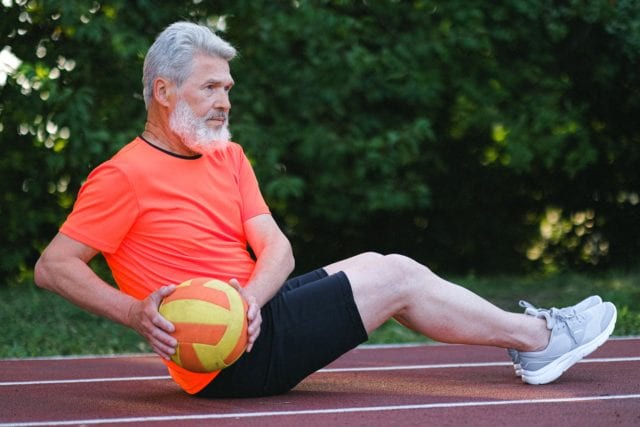Mental Stimulation: 3 Ways To Keeping Your Mind Active And Defend Against Dementia
Dementia is an overall term used for a group of cognitive medical conditions like loss of memory, language, and problem-solving & thinking abilities. The condition is severe enough to hamper the quality of your life and needs to be addressed as soon as diagnosed. The most common cause of dementia is Alzheimer’s disease. Other causes may include deficiencies of vitamin and thyroid problems.
What causes dementia?
Dementia causes abnormal changes in the brain which initiates the decline in its functioning. Dementia is mainly of two types;
- Vascular dementia
- Mixed dementia
The former occurs due to blockage of blood vessels or microscopic bleeding in the brain. While the latter accounts for brain changes due to multiple other types of dementia. The major problem faced by people with dementia is short-term memory loss. They can’t keep a track of their belongings. They may forget about their daily work-schedule like paying bills, preparing meals, medical appointments, etc.
The disease is progressive which means it can potentially get worse with time. The brain damage caused by the condition is likely to increase as time passes. Brain cells lack effective communication and signaling which disturbs the normal thinking and behavior of an individual. As the condition goes worse, the patient is likely to develop mental disorders like depression, anxiety issues, etc.
To keep the situation under control, effective treatment is a must. However, there is no ultimate cure or treatment for the disease. Medicines are used to improve the symptoms temporarily but these medicines offer greater side effects. Then what can be done to improve the situation? Well, we have an effective solution for that which is “keeping your brain healthy and active” as much as possible. Many research studies say that training your brain to be healthy and active can;
- Delay the onset of Alzheimer’s and dementia
- Improve the symptoms of the disease naturally
How? Let’s find out!
How is mental stimulation good against dementia?

Keeping your brain active builds your cranial reserves of healthy cells and connections. The more active the brain, the greater is its cognitive functioning. Many research studies have proved that when the human brain is engaged in mentally stimulating activities, it is likely to perform well throughout life with fewer risks of cognitive decline. Mental health activities build your brain reserve which compensates for the damage caused by dementia or Alzheimer’s disease.
The Journal of Alzheimer’s & Dementia: Translational Research & Clinical Interventions has published a study that states that brain-training activities can reduce the risk of dementia. The study included a training called the “speed-of-processing” in which a person quickly identifies and remembers the object placed in front of them. The participants were randomly placed in three training groups;
- Verbal memory skills training group
- Reasoning and problem-solving skills training group
- Speed-of-processing training group
The third group participants were asked to identify objects before them and those in the peripheral vision. As the game continued the time for identification of the objects was decreased and the distractions on the screen were increased. The mental stimulation study showed that all three groups showed a significant decrease in the risk of dementia after 10 years but the people from the third group reported the greatest decrease. The study overall concluded that mental stimulation activities that keep the brain active can potentially be used to prevent and improve symptoms of dementia.
Do you know about Lamarck’s concept of use and disuse of an organ? This concept can definitely be related to the respective topic. Jean-Baptiste Lamarck was a French naturalist. He is well-known for his theory of “Inheritance of Acquired Characteristics.” He presented the concept of use and disuse of an organ according to which an organ that is used more is likely to develop and strengthen more and the one not used diminishes with time.
According to Lamarck, snakes in the past probably had legs but they didn’t use them so they evolved the way we see them today. Linking this concept with the brain; the more you’ll use your brain, the more likely is it to develop well. And its healthy development will reduce the chance of decline in the brain-related functions keeping the risk of cognitive diseases at bay.
Now you must be thinking that how can you keep your brain active so that it doesn’t fall prey to diseases. Well, we have a solution to that as well. Here we present some of the phenomenal ways of keeping your brain healthy and active. So, let’s begin.
How to keep your brain active?
Measure with CogniFit Pro and throw away your Mini Cog.
Keeping your brain active is an art and you can master it through your effort and dedication. The three major requirements are;
- Eat food that boosts brain health
- Maintain a healthy workout routine
- Practice brain-stimulating exercises
Although we’ve only talked about mental activities keeping your brain active, a healthy diet and exercise are equally important as well. Eating brain-boosting foods and following a healthy workout schedule can also keep your brain nourished so that it works actively. Let’s look in detail at how each one of these can help you.
Maintain a healthy diet
The food you eat has a great deal to do with the health of your brain. It provides the brain with all the nutrients that are required for healthy growth. Along with a focus on mental stimulation, proper nutrition is important for strengthening the mental and cognitive abilities of an individual. A healthy diet can help you perform better at various menial tasks and improve your focus and concentration. Following are some food items that are scientifically proven to boost brain health, keeping it active and away from the risks of cognitive decline.
- Fatty fish: Almost 60% of our brain is made of fat, half of which is omega-3 type. Fatty fish being the richest source of omega-3 fatty acids build your brain and nerve cells essential for learning and memory.
- Coffee: Caffeine and antioxidants present in the coffee help your brain to stay active. They increase alertness, improve mood, and sharpen your concentration. However, drinking too much coffee isn’t good so try to use it in a moderate amount.
- Blueberries: The anti-inflammatory and antioxidant effects of blueberries make them effective against oxidative stress and inflammation which are two major causes of brain aging and neurodegenerative disorders.
- Turmeric: It is a deep-yellow spice that is the greatest source of Curcumin. Curcumin has been scientifically proven to cross the blood-brain barrier and benefit the cells by its anti-oxidant and anti-inflammatory potential. It sharpens your memory, eases depression, and boosts the production of brain-derived neurotrophic factors i.e. a growth hormone for the brain cells.
- Nuts: Research studies show that eating nuts improve the markers of cardiovascular health. And a healthy heart promotes a healthy brain. Nuts can significantly improve cognition and prevent neurodegenerative diseases. They are a source of healthy fats, antioxidants, and vitamin-E which shield the brain cells against oxidative damage.
- Eggs: These provide you with several nutrients like Vitamin-B6, B12, choline, and folate. Choline helps in the production of acetylcholine which regulates memory and mood. The vitamins benefit the brain by slowing the progression of cognitive decline. Most of the people with dementia are reported with deficiency of folate, eggs can help you improve the levels of folate in your body, minimizing the risks of the disease.
Practice physical exercise daily

Maintaining a healthy exercise routine improves your mental health and keeps your brain active. When you exercise, your heart rate increases. It pumps more oxygen to all parts of the body including the brain. Good blood flow works great for the growth of brain cells and neurons and they work efficiently. Also, exercise is good for neuroplasticity as it stimulates the growth of new connections between the cortical regions of the brain. Most importantly, exercise keeps your hormones in balance which improves your physical and mental wellbeing.
You don’t need to join a gym or get heavy exercise machines at home. A 30-minute long walk in the morning and at night can bring you all these benefits. You can try simple exercises at home like skipping rope, pushups, planks, etc. Try to participate in sports, go running and cycling. Gather your friends and play football, badminton or anything you like.
Practice mental stimulation exercises
Exercises that challenge your brain works the best to keep it active. For that consider taking educational classes, doing crossword puzzles, reading challenging books, or anything that exposes your mind to new tasks. Here are some mental stimulation exercises you can do;
- Learn a new language
- Do puzzles and crosswords
- Play games involving quizzes
- Play card or board games
- Study a course (be it relevant to your academics or not)
- Play Sudoku, it is the best game for challenging your brain
- Read books as much as you can (fiction, non-fiction anything)
- Write and draw
- Question things around you and look for their answers
- Involve yourself in healthy discussions
All these activities will help you to keep your brain healthy and active, lowering the risk of cognitive decline or dementia.
After receiving his undergraduate degree in psychology, Scott went on to work as a teacher and educational counselor while working towards his master’s degree. He has spent several years working with children and adults and has personal experience with Attention Deficit Hyperactive Disorder, Dyslexia, and Depression.